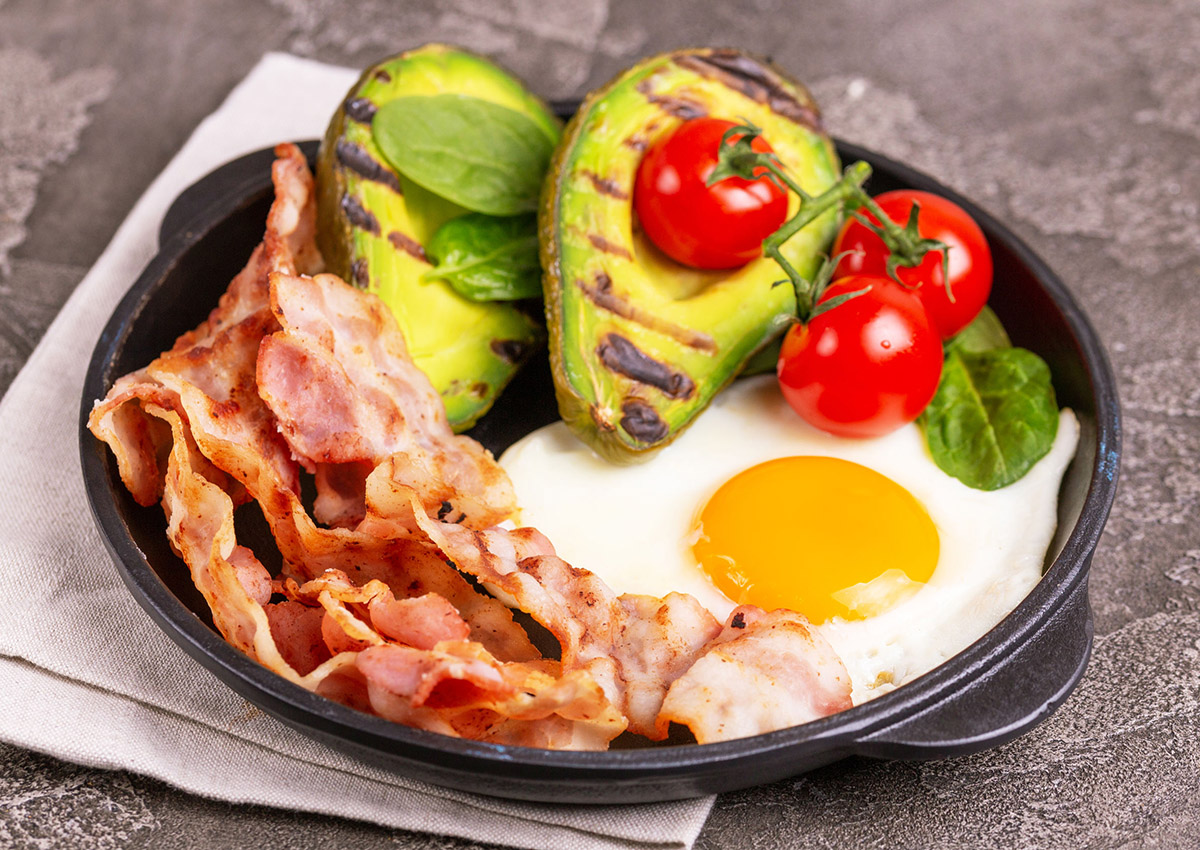Source: Thailand Medical News Sep 01, 2019 5 years, 7 months, 3 weeks, 4 days, 19 hours, 57 minutes ago
The ketogenic diet is a high-fat, adequate-protein, low-carbohydrate diet that many are advocating as good for weight lost and also for other medical conditions of which there are no substantial supporting studies. But new research conducted by the University of Southern California (USC) is showing that many on the Keto diet are developing a serious liver condition known as nonalcoholic fatty liver disease, or NAFLD, in which extra fat builds up in the liver. It may lead to serious consequences like cirrhosis and liver cancer, just like liver problems caused by drinking too much alcohol.

About 24 percent of the global population is estimated to have NAFLD,which doctors pronounce as "nah-fold" or "naffle-dee." This figure is even higher in developed countries like the US where about 35 percent are affected by the disease.
Dr Hugo Rosen, a liver disease specialist and chair of medicine at the Keck School of Medicine of USC commented in an interview with Thailand Medical News "In my clinic, I used to see mostly hepatitis C patients. Now most of the patients I see have fatty liver disease.It's a problem that closely tracks with the emergence of obesity and diabetes throughout the world.I t's a really important issue to be aware of.Patients with NAFLD have at least a twofold risk of dying of a coronary event or having a stroke."
Medical Researchers also believe the condition is linked to increased risk of liver cancer even in the absence of clear-cut cirrhosis. Preliminary results from a Mayo Clinic study has suggested NAFLD can increase susceptibility to other forms of cancer as well.
Most individual do not know they have a fatty liver, leading to its reputation as a "silent killer." It usually causes no pain or other symptoms. It's often not until the disease has progressed to a more serious stage, like nonalcoholic steatohepatitis (NASH) or cirrhosis (serious scarring of the liver), that patients and doctors are alerted to the problem.
In NASH, the liver becomes inflamed and damaged, which can cause scarring and higher risk of cancer or liver failure. Patients worried about NALFD or NASH should request liver blood tests and imaging tests like an MRI or ultrasound. Concerning results could indicate the need for referral to a liver specialist and a liver biopsy. Vitamin E and the diabetes drug pioglitazone have helped some patients but the US FDA has approved no drugs for the disease yet. Losing weight is the main strategy to combat the problem, because it helps reduce fat and inflammation in the liver.
Poor eating habits and fad diets that boost fat intake are particularly worrisome. The keto diet,which emphasizes eating lots of fats and restricting carbohydrates, can lead to NAFLD, according to research done in animal models.
Keto is attractive to many people because they can eat a lot of tasty stuff from butter, red meat, cheese, but they are basically consuming 80 percent of their caloric intake from fat. It is recommend not to overdo on fats especially from processed foods. Fructose and other sugars are a major concern as well, especially in sodas, candy, sugary cereals, sweetened juices and fast food. Those kinds of refined foods can increase cholesterol and cause inflammation in the liver.
Instead, eating a well-balanced diet that features high-fiber foods, vegetables, fruits, fish, lean meats, nuts,
eggs, seeds and unrefined oils. It's a menu familiar to those following other popular diet trends: the paleo and Mediterranean diets. Some data have shown that a paleo diet has a significant and persistent effect on lowering liver fat compared to a low-fat diet, simply because a low-fat diet is not palatable to a lot of people.
Beyond consulting with a doctor or nutritionist about their dietary habits, individuals with NAFLD or NASH should consider moderate exercise to avoid a condition called sarcopenia, or low muscle mass and strength. When combined with obesity, sarcopenia can further increase the risk of liver inflammation. Another concern is alcohol. Although by definition, NAFLD is unrelated to alcohol use, people with poor liver health should be careful about how much they drink. Even moderate alcohol consumption (10 to 20 grams for women and 10 to 30 grams for men per day) can cause issues, citing a recent study that followed 60,000 Koreans with NAFLD. A typical drink has 10 to 14 grams of alcohol. It turns out that if a patient has NAFLD and they drink this moderate amount, they have a much higher rate of developing worsening fibrosis over time.
The researchers at USC are also calling for health providers to learn more about liver issues like NAFLD. Doctors who see patients who are overweight or obese should consider recommending a screening ultrasound or other methods to determine fat levels in the liver. Doctors, healthcare professionals and government agencies should educate people about the dangers of Keto diets and other diets high in fats and also get awareness about NAFLD to the urban and rural masses. In Thailand, the incidences if NAFLD has also risen triple fold over the last decade.
